Hasselblad has introduced a new 25mm prime lens to add to its already crowded wide-angle assortment. I’ve reviewed the 30mm f/3.5, and Hasselblad also has 28mm f/4 and 21mm f/4 lenses. However, this new wide prime splits the difference and has an even brighter f/2.5 aperture.
Hasselblad XCD 25mm f/2.5 Review: How It Handles
Hasselblad has been working hard lately to reduce its the size and bulk of its lenses while increasing light-gathering potential. The 25mm lens has an ordinary 72mm filter diameter, and at only 20.8 ounces (592 grams), it is very lightweight for its capabilities.
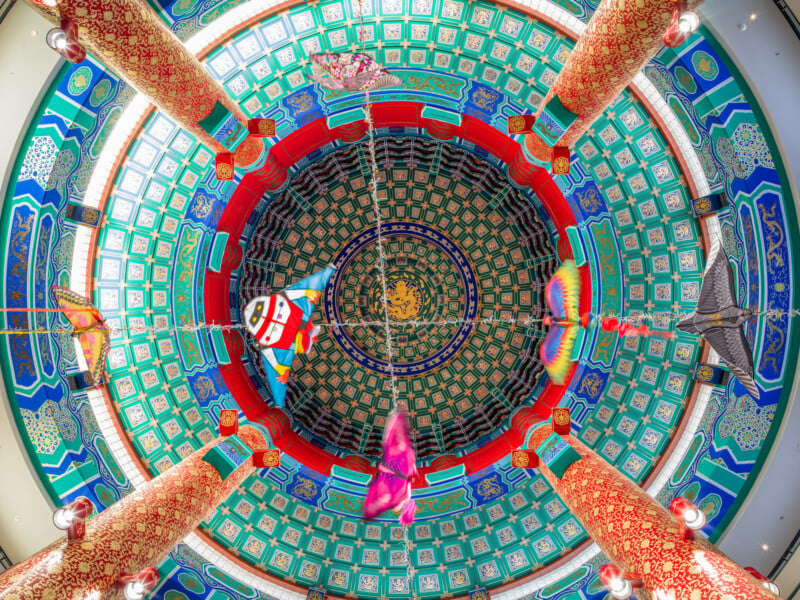
Hasselblad lenses are always built to a high standard and have good weather-sealed designs. I like the manual focus ring with its quick push-pull clutch, and the rubber grips are very grippy, for lack of a better term.
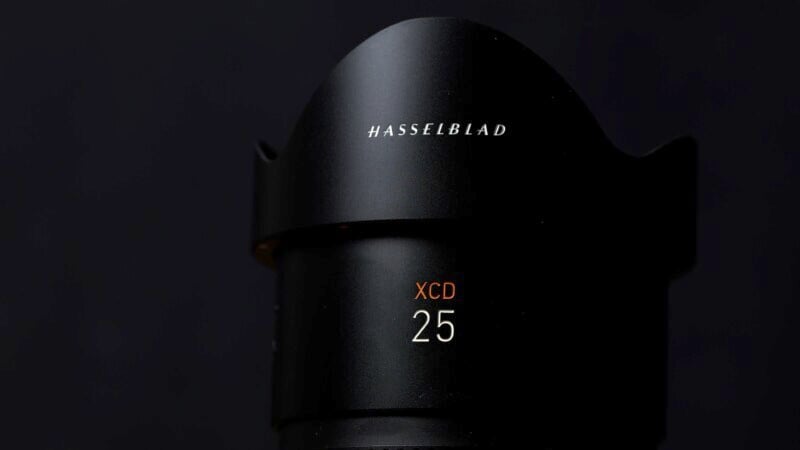

Hasselblad has also added a customizable ring that can be set to click or de-click functionality. I used it primarily as a clicked aperture ring to facilitate faster exposure control.
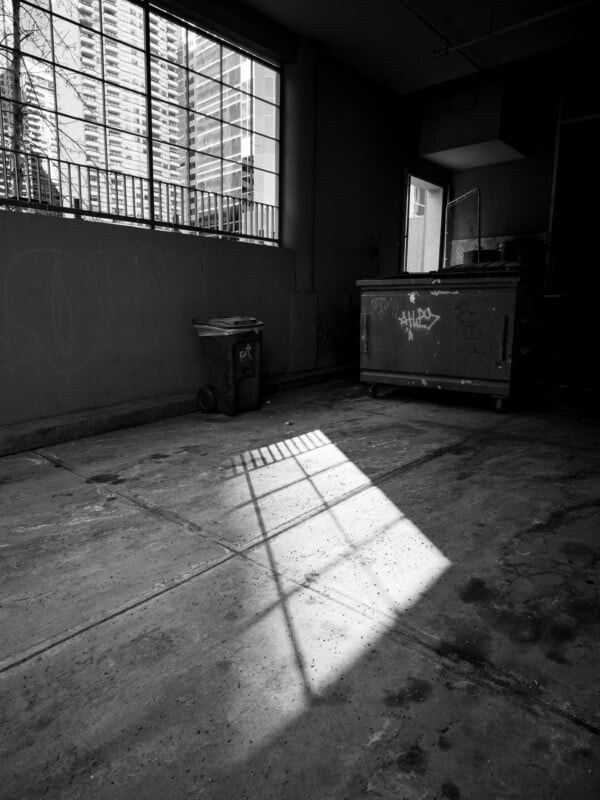

Hasselblad XCD 25mm f/2.5 Review: How It Shoots
The autofocus motor isn’t blisteringly fast. Still, Hasselblad cameras don’t tend to focus that quickly anyway, and for the architecture and landscape shots that the 25mm is intended for, the fastest autofocusing isn’t critical.

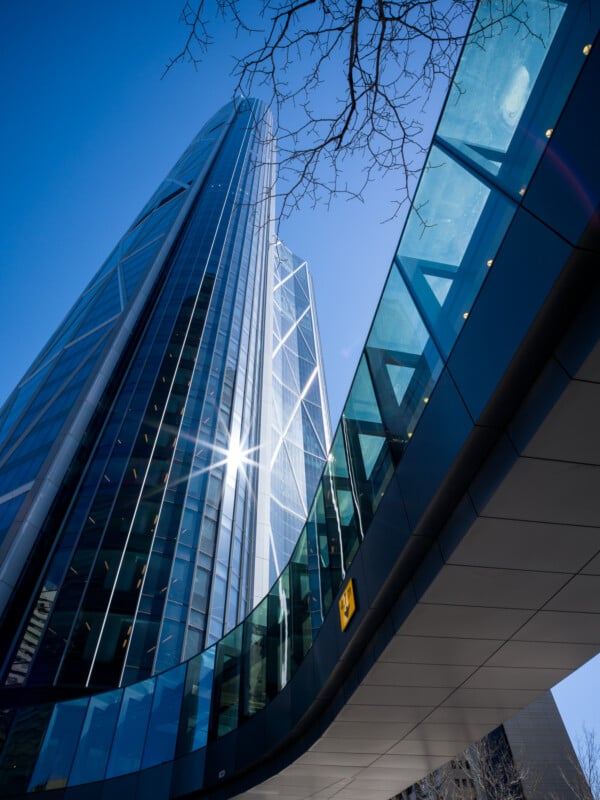
Hasselblad is known for having excellent lens coatings, and the 25mm does not disappoint. Contrast is excellent even when shooting toward bright light sources, and ghosting is well controlled even at tighter apertures. The lens also delivers stunning sunstars, which landscape and cityscape photographers will appreciate.

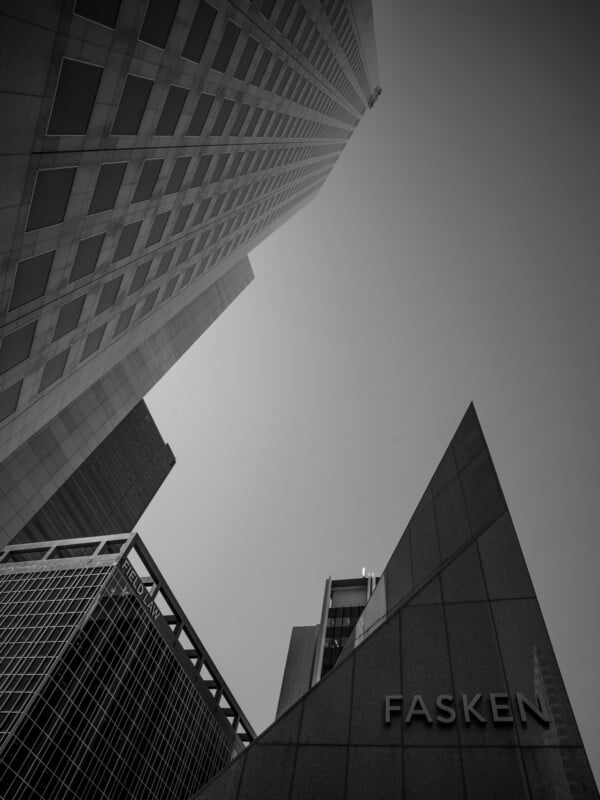
I wanted to test bokeh and the look of specular highlights, so I popped into a local dessert cafe called Rocky Dessert Market. Tommy, the owner, was kind enough to allow me to shoot inside. I found the highlights at f/2.5 to have no cat’s eye effect and to be free from onion rings or a strong soap bubble effect.
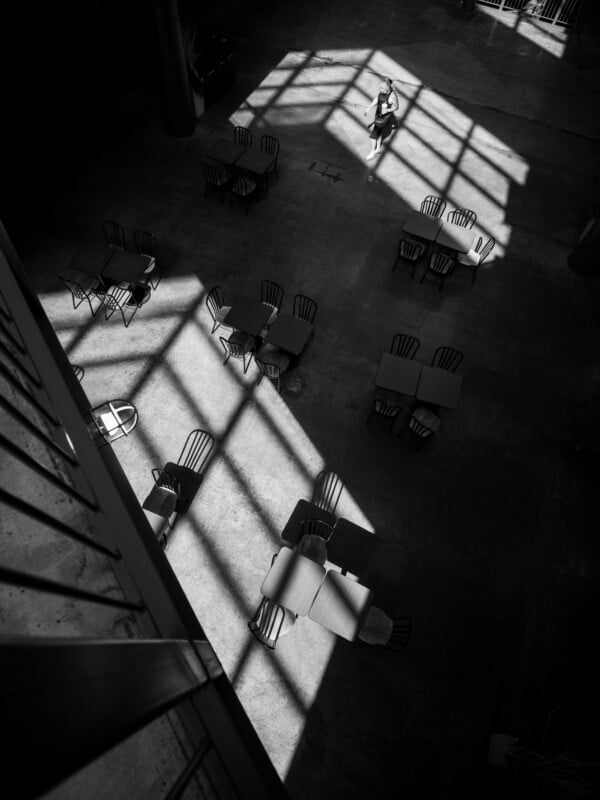
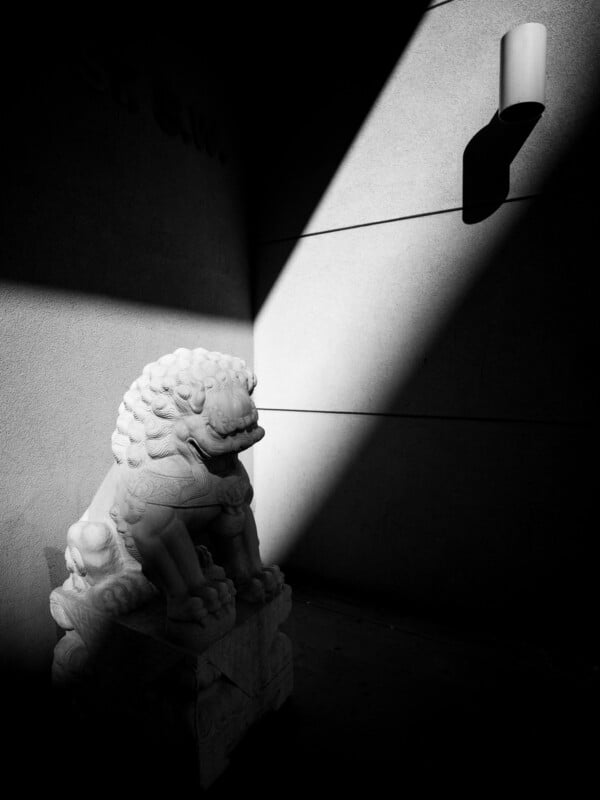
Even more surprising was the round shape of the highlights when the aperture was stopped. Hasselblad lenses typically have a distracting polygonal look to the highlights, but the 25mm lens renders them smooth and round-looking. This gives out-of-focus areas of the image a soft and creamy look and makes the transitions across areas of the image smooth and buttery.

Next, I tested sharpness and found the 25mm exceptionally sharp in the center of the frame at f/2.5. Stopping down slightly improved contrast, but just barely. Even the corners look good wide open, and the lens shoots very flat, which means that if the center is in focus, the corners are too.
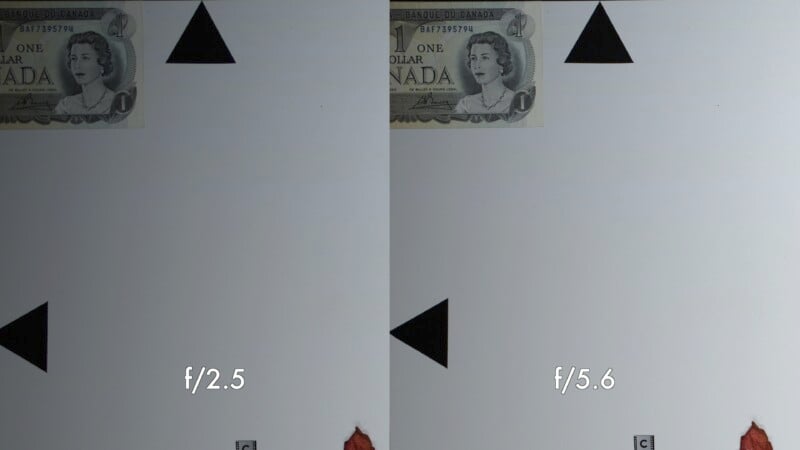
A Welcome Addition to Hasselblad XCD
There aren’t many lenses intended for night photography on the Hasselblad medium format system. But this 25mm is the closest we’ve got so far, and I wanted to shoot some night scenes. At f/2.5, there was almost no Coma in the corners, but there was some Sagittal Astigmatism, which creates a bat-wing look to highlight the edges of the frame. It wasn’t terrible, though, and by f/4, the Coma and SA essentially go away. This is not a perfect astrophotography lens, but it’s the best we’ve seen from Hasselblad.

So you have a lens with some of the nicest bokeh you’ll get, a usable f/2.5 aperture, and sharpness as well. If you want a fast wide-angle with excellent optics and the versatility to shoot nightscapes, look no further.

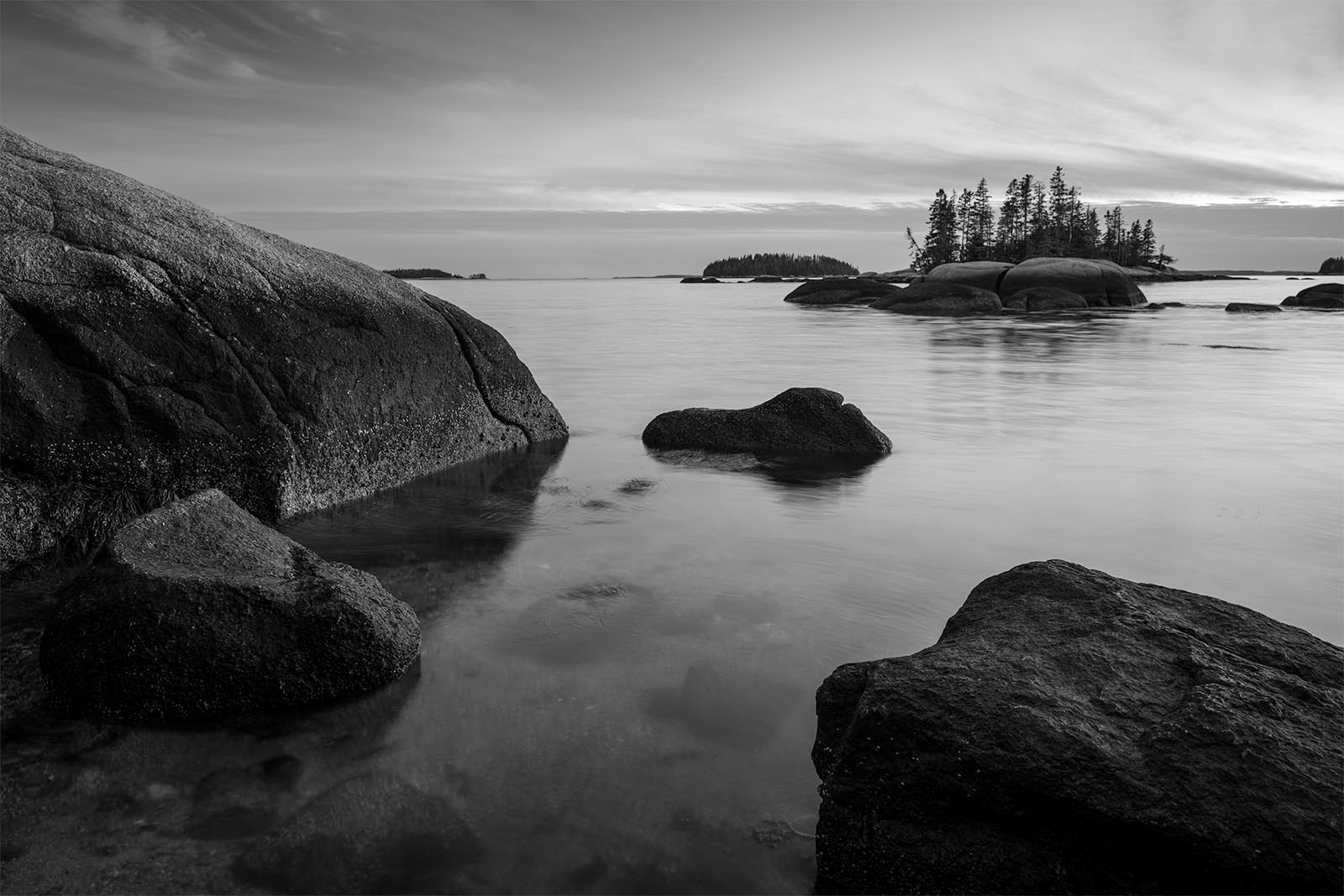

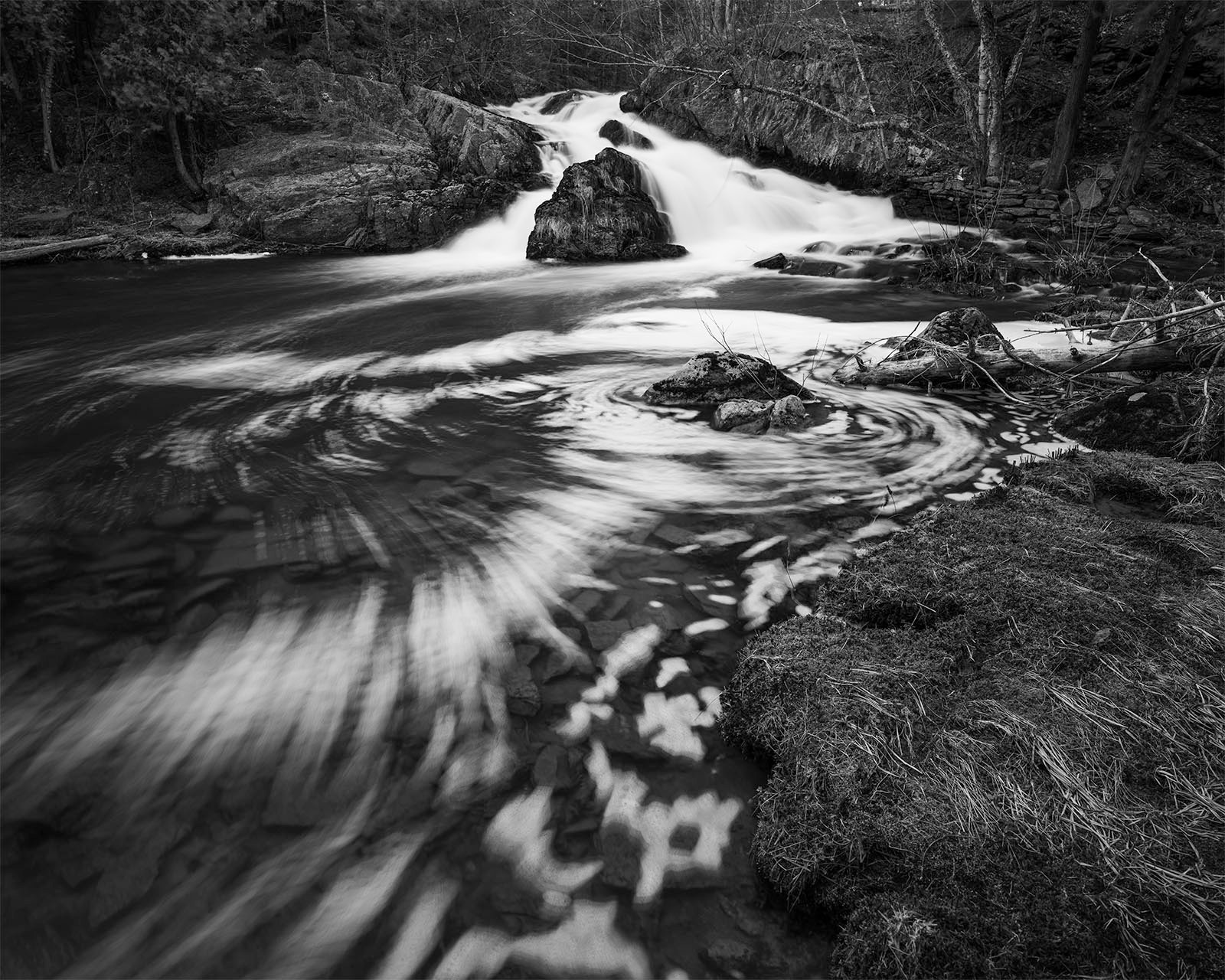
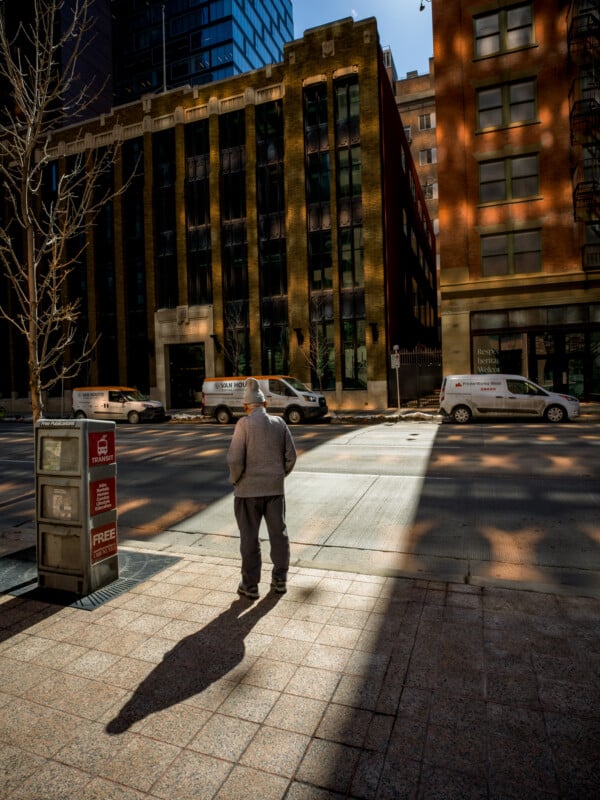
Are There Alternatives?
The 21mm and 28mm primes are good options, but I find the 21mm to be too wide in most scenarios, and this new 25mm gives you more light to boot. If you want one wide-angle prime to handle as much as possible, the 25mm is the way to go.
Should You Buy It?
Yes. The versatility and bright aperture make this an excellent choice for the Hasselblad system.
